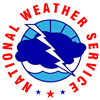
Gusty to high winds and low relative humidity will bring elevated to critical fire weather to the central and southern Plains into Wednesday. Two Pacific storms will impact the western U.S. into Wednesday with gusty winds, low elevation rain, and heavy mountain snow. Read More >
In May of 2021, NOAA's National Centers for Environmental Information (NCEI) released an update to the U.S. Climate Normals. This update replaces the 1981-2010 normals with 1991-2020 normals.
What are Climate Normals?
Climate Normals are 30 year averages of climatological variables, such as temperature and precipitation, that are produced by NCEI every ten years. Normals are the basis for judging how temperature, rainfall, and other climate conditions compare to what’s normal for a given location in today’s climate. In other words, normals allow us to put today or yesterday's weather into historical context.
Why have the normals been updated?
The World Meteorological Organization (WMO) mandates that each member nation compute the 30-year averages and recommends an update every decade. This helps keep our climate baseline up to date with the most recent data.
Who uses Climate Normals?
The National Weather Service, TV, radio, and digital media forecasters use Climate Normals compare yesterday’s weather to what was experienced over the past three decades. In addition to meteorologists and climatologists, energy companies, farmers, builders, and community planners are some of the industries and sectors that rely on Climate Normals to develop their business plans. The dataset holds significant importance for applications such as crop selection and planting times, construction, building design, and energy load forecasting.
Where can I access all of the Climate Normals?
Click here for the NCEI Climate Normals page.
The updated Climate Normals are warmer and wetter for every month, right?
Not necessarily! Late winter and early spring temperatures have shown a cooling trend across the Great Lakes region, for example.
Where can I read more about Climate Normals?
NOAA’s Updated U.S. Climate Data Will Establish “New Normal”
Legions of citizen scientists contributed to NOAA's new Climate Normals
Climate change and the 1991-2020 U.S. Climate Normals
 |
Media use of NWS Web News Stories is encouraged! |
 |